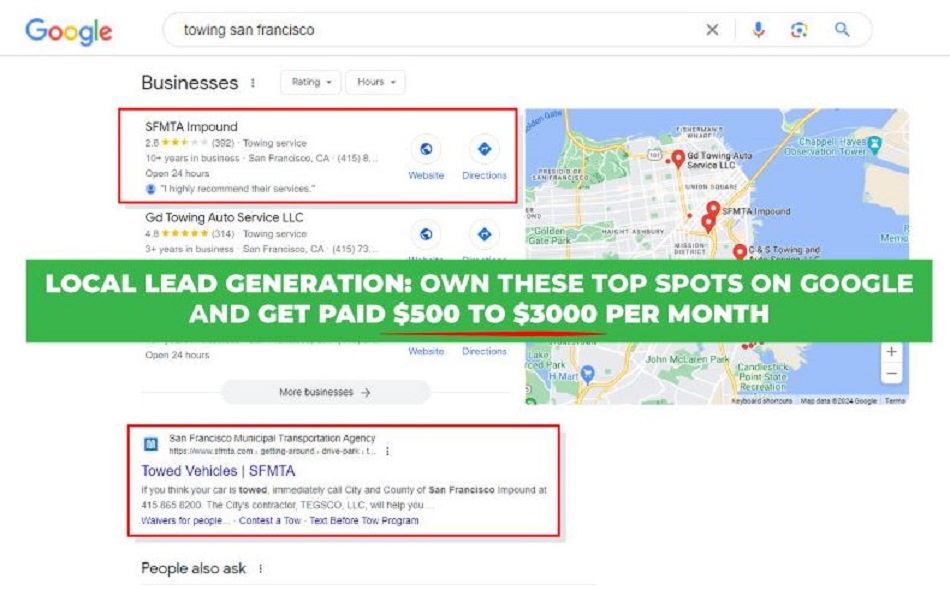Performance Affiliate Marketing, Is It Profitable? | Industry, Brands, & Affiliates

Performance affiliate marketing is profitable. The top 3% - 4% of performance affiliate marketers earn over $150,000 annually, according to Influencer Marketing Hub. However, the majority 57% of performance affiliates make less than $10,000 per year. That means there are many performance affiliates earning considerable income.
Rafael Zelik is one of the performance affiliates that has achieved large profits with the business model. Affiliate Monkey discloses that Zelik generates between $40,000 - $50,000 per month from performance affiliate marketing.
Performance affiliate marketing is a subset of digital marketing where external marketing partners are only compensated for driving specific actions that benefit the company. Performance affiliate marketers are compensated for getting people to take pre-defined actions for a brand, such as buying a product or service. Affiliate marketing and performance marketing are not the same thing. Affiliate marketing is a major aspect of performance marketing, but there are other digital marketing business models that fall under the performance marketing umbrella, such as local lead generation.
I’ve been doing performance marketing for over a decade. In the following article, I discuss the profit potential of performance affiliate marketing and how the model benefits both brands and affiliates. I also break down how to make money online as a performance marketer.
Is Performance Affiliate Marketing Profitable?
Performance affiliate marketing is profitable. Brands that invest into performance affiliate marketing get an average return of $15 for every $1 spent, according to Authority Hacker. That equates to a 1,400% return, meaning performance affiliate marketing is usually highly profitable for brands.
Performance affiliate marketing can also be highly profitable for marketers that promote affiliate products. Influencer Marketing Hub estimates that the performance affiliate marketing industry earns over $15.7 billion annually.
Jeremy Shoemaker is an example of a “super affiliate”, a performance affiliate marketer in the top 1% of earners. Jeremy is reported to have made over $10 million online, a large portion through performance affiliate marketing. His primary traffic channels are SEO and PPC ads.
Profit potential as a performance affiliate marketer is based on factors like niche and marketing channel. Finance and technology are two of the highest earning performance affiliate marketing niches, with average monthly incomes of $9,296 and $7,418 respectively, according to AffiliateWP. Some of the lowest earning niches are arts and crafts at just $1,041/month and pets at just $920/month.
Your performance affiliate marketing profit margin depends heavily on which marketing channel is used. For example, you could generate 100% profit margin by just creating and promoting affiliate content through free social media accounts. You could have zero marketing expenses by just leveraging TikTok’s algorithm to generate clicks to an affiliate offer. SEO is the most popular performance marketing channel for affiliates, with 78.3% generating clicks with website content, according to Authority Hacker.
Matt Diggity provides an excellent case study of a performance affiliate marketing profit margin leveraging SEO. Matt bought a website through Empire Flippers. He invested $42,000 into SEO, $21,500 for website content and $20,500 for backlinks. He generated $282,513 in affiliate marketing commissions before selling the site. As such, his performance affiliate marketing profit margin from SEO was over 85%.
How Does Performance Affiliate Marketing Work?
Performance affiliate marketing works by compensating third-party marketers only for the pre-specified actions they generate. Common actions performance affiliates are compensated for include sales, leads, click, calls, and downloads.
The Bluehost affiliate program compensates website owners for the qualified sales they generate. Bluehost pays their performance affiliates $65 when a customer purchases after clicking on their affiliate link. Bluehost offers a 30 day cookie window so their affiliates can get compensated for up to 30 days after a potential customer first clicks their link.
The Coinbase affiliate program compensates affiliates for the transactions that their referred customers make for three months after signing up through the affiliate link. Coinbase pays the affiliate 50% of the transaction fee. Coinbase transaction fees range between 0% - 0.6% of the trade. For example, say the transaction fee is 0.3% of a $20,000 cryptocurrency trade. Coinbase charges a trading fee of $60, and the affiliate earns 50%, or $30 for the transaction. As such, affiliates are compensated for the quality of leads they bring because the more money the person trades with Coinbase, the more money the affiliate earns.
Is Performance Affiliate Marketing Worth It?
Performance affiliate marketing is worth it for a brand because it:
- Pays only for concrete results rather than speculative outcomes.
- Achieves a high ROI. Most businesses only pay affiliates between 5% - 15%, according to UpPromote.
- Receives a high performing marketing channel. 73% of companies say affiliate meets or exceeds revenue expectations, according to WebFX.
- Builds audience trust through external recommendations. Data from Matter shows that 69% of customers’ trust promotions from influencers more than brands.
Performance affiliate marketing is worth it for affiliates because:
- The income potential is uncapped, Affiliates can earn $0 - $100K+ through an affiliate program.
- The working arrangement is highly flexible. Affiliates can work from anywhere at any time for any amount of hours.
- The model requires no investment in products. Startup costs are minimal compared to other business models.
- The affiliates earn passive income if using SEO and email marketing to generate sales.
How to Get Started With Performance Affiliate Marketing?
- Choose a niche to target - Determine the audience base you want to create marketing materials to attract. For example, Marques Brownlee is a performance affiliate marketer that targets the technology niche with YouTube tech reviews.
- Create a performance affiliate marketing strategy - Decide which online channels you will promote affiliate products through. These can include one or a mix of digital marketing channels that include website SEO, PPC ads, social media, YouTube, and email.
- Sign up for relevant affiliate marketing programs - Apply to affiliate programs that are relevant to your chosen niche. You can apply to affiliate programs directly through a brand or apply for affiliate networks where you can access multiple affiliate products. For instance, many performance affiliates use the Amazon Associates affiliate network to access and promote any product on the Amazon Marketplace. To access some affiliate programs, you need to already have a proven traffic source to get accepted, such as a website or social media account.
- Promote affiliate offers to generate commissions - Embed affiliate links in relevant content. Then implement the affiliate marketing strategy and guide your target customers to click on the links and perform actions that are compensated by the affiliate program owner.
- Track affiliate marketing performance - Affiliate marketing programs generally come with their own affiliate dashboards so that performance affiliates can track the earnings that their links generate. You can enhance the tracking of your marketing efforts by setting up Google Analytics and Google Search Console on your website. Many performance affiliates use tools like Pretty Links and Bit.ly to get a comprehensive view of all the affiliate programs they promote in one dashboard.
What Is Performance Marketing?
Performance marketing refers to any type of marketing arrangement where the marketer is paid for generating specific results. Affiliate marketing and lead generation are the two most common performance marketing business models.
Consider performance lead generation. Some of our students coordinate their lead generation contracts so that they only earn a commission when their client closes a sale. Typically, a 10% commission is standard in many industries.
What Is Affiliate Marketing?
Affiliate marketing is a type of performance marketing where individuals external to a brand promote the brand to earn commissions. The efforts of these individuals, called affiliates, are tracked and rewarded through custom website links, called affiliate links. Brands choose which actions they compensate affiliates for, with sales being the most commonly compensated.
What Is the Main Difference Between Affiliate Marketing vs Performance Marketing?
The main difference between affiliate vs performance marketing is that affiliate marketing always uses affiliate links specifically to track marketing results. Performance marketing covers a broader range of marketing strategies, of which affiliate marketing is a primary channel.
What Is the Difference Between Performance Marketing vs Growth Marketing?
The difference between performance marketing vs growth marketing is that performance marketing focuses on short-term revenue while growth marketing focuses on long-term revenue. Performance marketing typically leverages marketers external to the business operations to realize revenue goals. Growth marketing generally requires marketing talent internal to the business to realize long-term strategies.
Conclusion: Is Affiliate Marketing the Best Performance Marketing Model to Make Money Online?
Affiliate marketing is not the best performance marketing model to make money online in {year}. Local lead generation is the best performance marketing business model. Local lead generation is generally less competitive and more profitable than affiliate marketing.
Affiliate performance marketers operate marketing campaigns that target global traffic while local lead generation targets local traffic. Performance affiliate marketers compete against thousands of businesses and affiliates trying to capture the same traffic, which is why most affiliates don’t make much money. Local lead generation entails using local SEO to rank websites for local search queries. As such, local lead generators typically only compete against a handful of small local businesses owners who are not expert marketers in one specific city or region. It’s much easier to be visible online and attract quality traffic with a local lead generation website than a niche website or authority website for affiliate marketing.

Local lead generation websites cost a few hundred dollars to set up and rank on Google. They can generate $500 - $2,500+/month. As such, it’s not uncommon for local lead generation website owners to earn profit margins of upwards of 90%. Leverage our local lead generation program to start your performance marketing career today.

Follow Me
Ippei Kanehara
Founder/CEO
$52K per month providing lead generation services to small businesses
Ippei.com is for digital hustlers, industry leaders and online business owners.
His #1 online business recommendation in 2024, is to build your own lead generation business.
